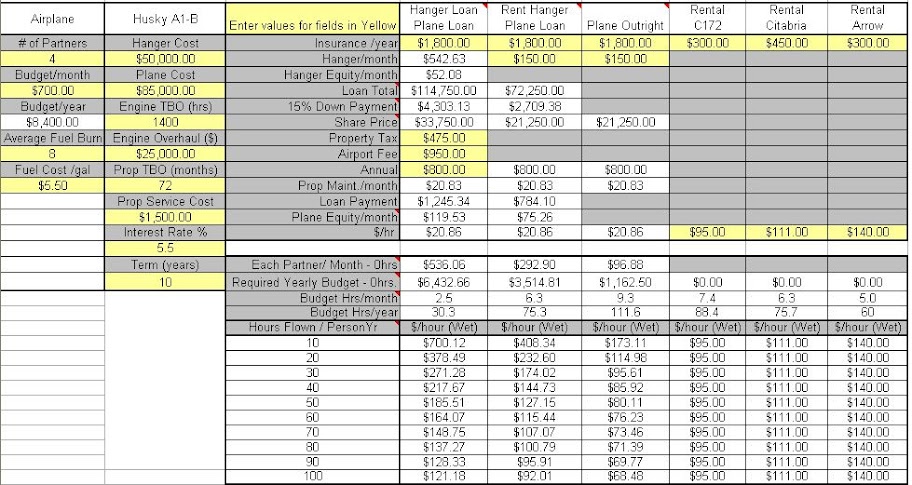I have heard this more than once...
Is it another pilot letting me know he has money?
I would like to know how many pilots have borrowed money for their airplane.
What if i consider the bottom line for monthly costs if i go through a hard time and stop flying for a few weeks
Hanger or tie down
monthly payment for plane loan
insurance
ALSO: I am a fan of the fact that when the plane is payed off my personnel worth has gone up (airplane equity). Maybe getting there has cost lots more per hour flying but i will have something after all those hours, even if the value has gone down.
Is it another pilot letting me know he has money?
I would like to know how many pilots have borrowed money for their airplane.
What if i consider the bottom line for monthly costs if i go through a hard time and stop flying for a few weeks
Hanger or tie down
monthly payment for plane loan
insurance
ALSO: I am a fan of the fact that when the plane is payed off my personnel worth has gone up (airplane equity). Maybe getting there has cost lots more per hour flying but i will have something after all those hours, even if the value has gone down.




